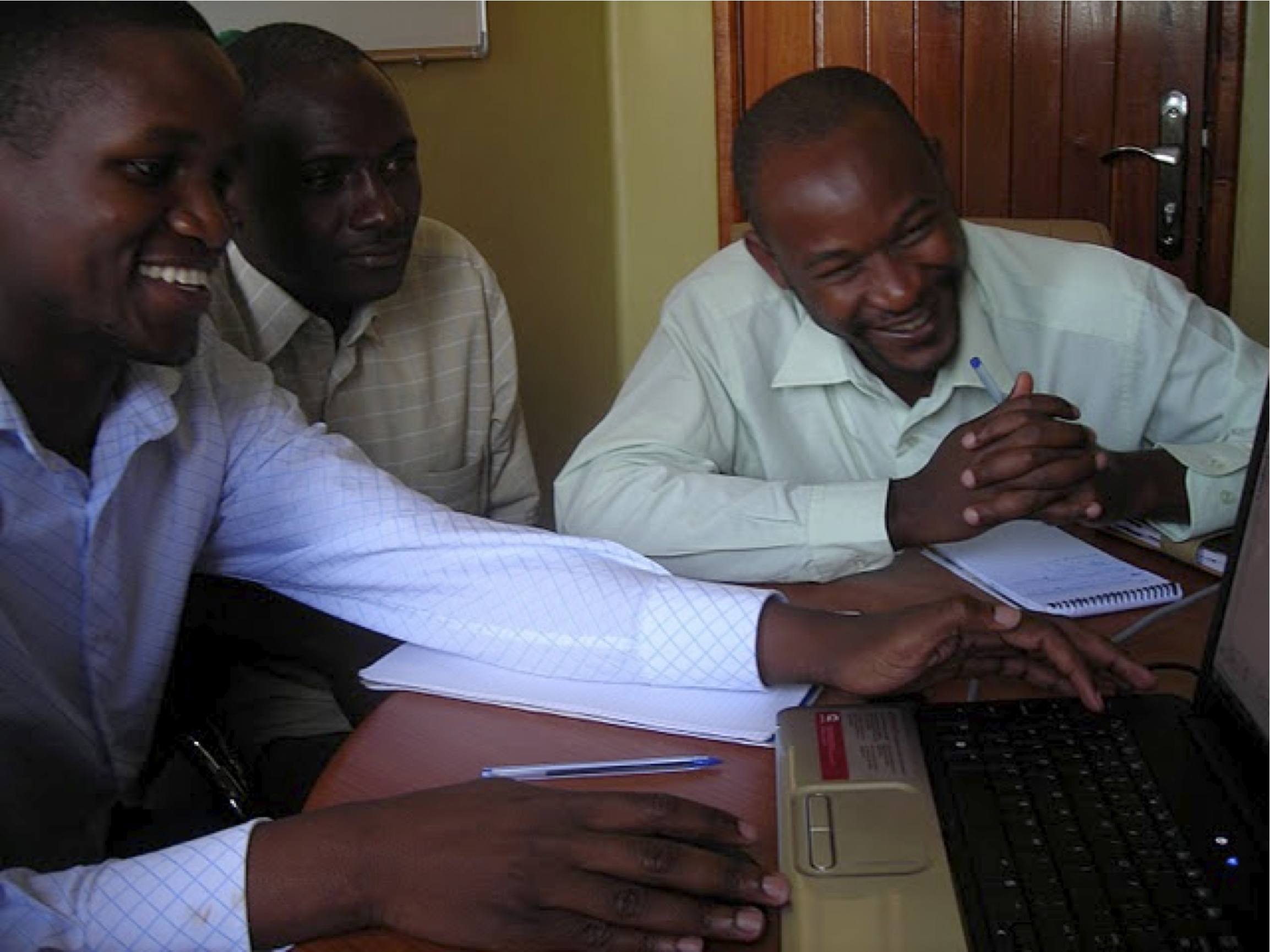As occasionally happens, Ken and I find ourselves on opposite sides of the world at conferences this week. Ken is at Mobile Web in Africa 2010, in Johannesburg, and I'm hereby asking him to tell you all about it here when he gets a minute. o/ I'm at Design for Persuasion in Ghent, Belgium, with a room full of people who've never heard of FrontlineSMS - this is only the second time I've done this kind of event, but it's something we're committed to doing because that's how we get the word out to new audiences. As I did after the Digital Indaba in July, I thought I'd post the gist of my talk here. You can also listen to an AudioBoo which I recorded in a far more coherent manner than the actual talk, shortly afterwards.
Sidenote: I showed, as I always do, Ken's favourite diagram of 'social mobile's long tail'. Related but different is the persuasion map we're all developing (read: wrangling over) live at the conference, at BJ Fogg's suggestion. It maps technologies along axes showing prominence versus usefulness. SMS has already moved from unknown to well known, and from useful to not useful, a couple of times. Will be interesting to see where it ends up - or who gives up first...
Since I joined the team back in March I've spent a lot of time emailing our users and begging them for stories and feedback about their experience. You can read a version of this plea here! Many of you have given generously of your time and energy to write and tell me your thoughts on the platform and the challenges of implementing using SMS.
 Something that surprised me a bit was the low proportion of users who were utilising more than the most basic functionality in FrontlineSMS. Many, perhaps 90-95%, are using only the functionality up to and including keywords to automatically respond to incoming SMS, or simply organise incoming SMS. But not all are aware of additional plugins like the Reminders module and the enormous potential of Medic's PatientView. Even auto-subscribing people to groups via SMS is a step beyond what many have time to set up.This might be controversial - do people disagree? Am I getting a false picture?
Something that surprised me a bit was the low proportion of users who were utilising more than the most basic functionality in FrontlineSMS. Many, perhaps 90-95%, are using only the functionality up to and including keywords to automatically respond to incoming SMS, or simply organise incoming SMS. But not all are aware of additional plugins like the Reminders module and the enormous potential of Medic's PatientView. Even auto-subscribing people to groups via SMS is a step beyond what many have time to set up.This might be controversial - do people disagree? Am I getting a false picture?
If not, the low take-up of advanced features is probably to do with capacity and time - both for many of the small community-based organisations who are our target user, if we have such a thing, and for larger NGOs and international organisations. Indeed, we know at times people struggle to get basic FrontlineSMS functions working effectively and meshing well with their existing work. We're tremendously excited about the potential of new functionality and technology, and small groups of users will be able to make excellent use of them - but for the majority of users, basic troubleshooting, support and advice are critical.
In the coming weeks we'll be working on our plans for the software in 2011 - stay tuned for more from this from our Lead Developer, Alex. Our role in providing user guides and resources, advice and support, and even training is something we're also looking carefully at. As ever, we'd welcome your thoughts.
